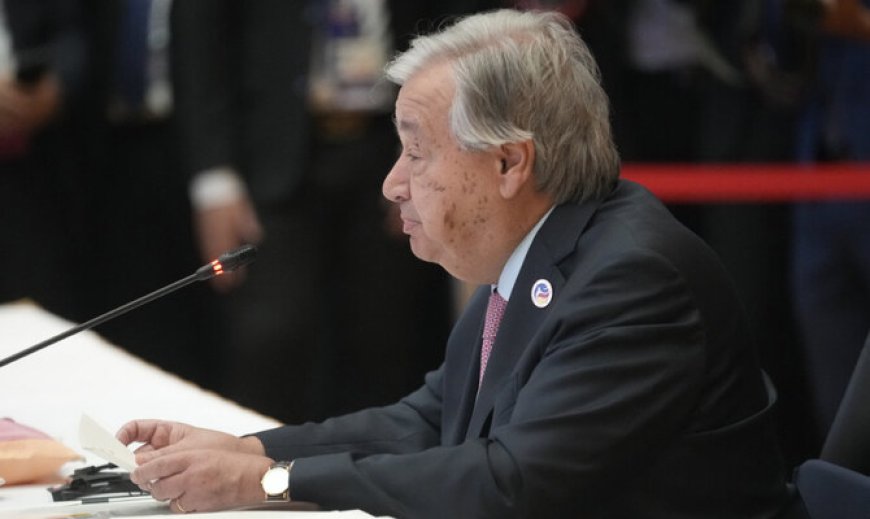As tensions in Southern Lebanon rise, UN Chief Notes War Crimes Risk
United Nations Secretary-General Antonio Guterres has issued a sobering warning on the safety of UN peacekeepers posted in Lebanon, reminding us sharply of the frailty of peace in the Middle East.

United Nations Secretary-General Antonio Guterres has issued a sobering warning on the safety of UN peacekeepers posted in Lebanon, reminding us sharply of the frailty of peace in the Middle East. Following a troubling event whereby Israeli tanks broke through UN peacekeeping base gates in southern Lebanon, Guterres underlined that any attack on these soldiers may be categorized as a war crime. This comment captures growing tensions as well as the intricate processes under action in the area.
Operating in the region since 1978, the UN peacekeeping force—known as the United Nations Interim Force in Lebanon (UNIFIL)—has mostly been assigned to guarantee that peace rules along the Lebanon-Israel border and monitor the ending of hostilities. The latest breach of their camp draws attention to the progressively unstable circumstances these peacekeepers find themselves in among continuous conflict between Israel and several armed groups in the area, especially Hezbollah.
Declaring, "UNIFIL peacekeepers remain in all positions and the UN flag continues to fly," UN spokesman Stephane Dujarric said in a statement He underlined that UN staff members' safety comes first and that any actions directed against them not only violate international law but also jeopardize the delicate stability UNIFIL tries to maintain. The comments of the Secretary-General act as a sobering reminder of the need of safeguarding the dignity of international peacekeeping operations as any violence directed against them compromises world attempts for peace and security.
The background of these events is a long-standing war defined by intricate geopolitics. The government of Israel regularly defends its activities in southern Lebanon as required for national security, especially in view of continuous threats from Hezbollah, which is supported by Iran and has past conflict with Israeli forces. On the other hand, the consequences of military operations aimed directly at UN peacekeeping operations carry more general risk and might start a more-wide regional conflict.
Attacks on peacekeepers have historically cause major diplomatic reaction. For example, a string of violent interactions between peacekeepers and militant groups during the 2000s begged issues regarding the effectiveness and security of UN operations in areas of conflict. The present increase could aggravate already fragile ties and cause UNIFIL's mandate and activities to be reviewed.
Guterres's caution emphasizes the immediate need of restraint from all those engaged as the world watches the situation develop. Compliance with international humanitarian law is absolutely crucial for the UN's reputation as well as for the troops' safety. The demand for responsibility strikes a strong resonance especially as the area might slide back into more general violence, which would have disastrous effects not only for Israel and Lebanon but also for the Middle East generally.













































